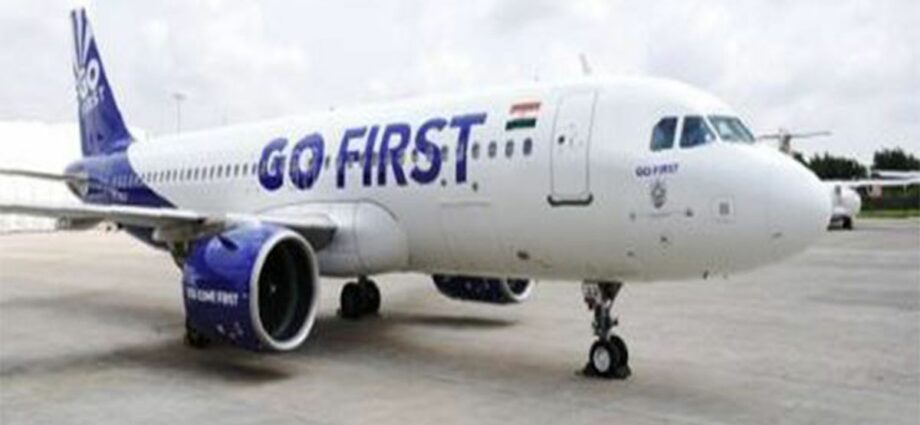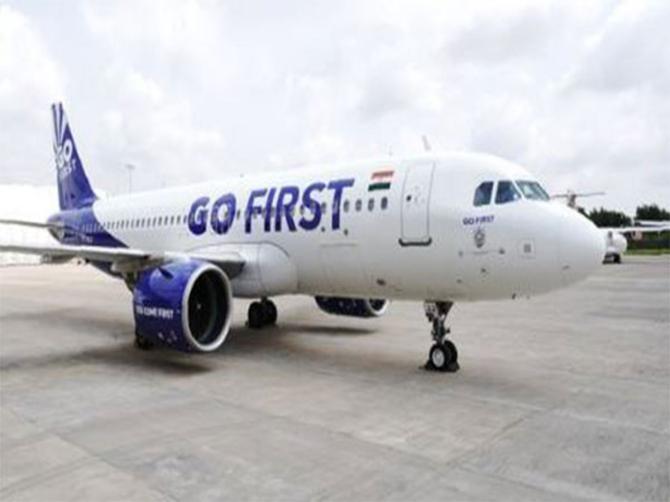Central Bank of India classified its loans to Go First as non-performing assets (NPAs) in the July-September quarter (second quarter, or Q2) of 2023-24 (FY24).
The no-frills carrier has been under insolvency proceedings since May 2023 and ceased operating flights on May 3 this year.
The public sector lender’s exposure, including government-guaranteed emergency credit to the ailing airline, amounts to about Rs 2,000 crore.
Apart from Central Bank of India, another state-owned lender, Bank of Baroda, also has substantial exposure to Go First.
During an analyst call for Q2, Central Bank of India executives revealed that the bank had previously made provisions in the standard asset category for one big corporate account (Go First) due to anticipated issues (stress) in the future.
With the corporate account now classified as NPA, the provision led to a write-back, resulting in a 100 per cent provision on that account.
In the April-June quarter of FY24, the bank paid tax on the provision (over Rs 600 crore) for this account, treating it as a standard asset.
Now, with the provision amounting to nearly Rs 2,000 crore as an NPA, the bank experienced a write-back of Rs 43 crore, as disclosed by bank executives.
While the bank did not specify the exact extent of recovery expected from this account, executives stated that the account was sufficiently collateralised.
They expressed confidence in the possibility of a successful recovery effort.
Any recovery made will contribute to the bank’s bottom line, the executives said during the analyst call.
According to provisioning rules, this account is categorised as a sub-standard account, indicating that it has remained non-performing for less than or equal to 12 months.
Although the provisioning obligation for sub-standard accounts can be up to 25 per cent of the exposure, depending on the nature of the credit facility, Central Bank of India chose to make a full provision for airline accounts.
A bank executive said, “The bank aims to reduce net NPAs and improve overall asset quality profile, hence the provision made exceeds the requirement.”
Of the Rs 2,000 crore exposure, over Rs 600 crore is covered under the Emergency Credit Line Guarantee Scheme by the Government of India.
The National Credit Guarantee Trustee Company, a government-owned entity, administers the scheme, providing emergency loan facilities to companies and micro, small and medium enterprises affected during the pandemic.
The lender will file claims based on the prospects for resolution and recovery from proceedings under the Insolvency and Bankruptcy Code, 2016.
In recent developments, Naveen Jindal-led Jindal Power and Jettwings Airways, a Guwahati-based regional airline, have submitted expressions of interest for Go First.
Despite efforts by the resolution professional at Go First to revive the airline with limited flights, securing funding from lenders has proven challenging due to ongoing legal cases filed by the aircraft’s lessors.
Source: Read Full Article
-
N.T.S.B. Will Investigate Norfolk Southern’s Safety Practices
-
No Country Possesses More Gold Than the United States
-
First Republic and other U.S. Regional Banks Remain a Source of Worry
-
U.S. To Import 4.3 Million Bottles Of Baby Formula Next Week
-
Biden Calls Former First Lady Rosalynn Carter 'champion For Women's Rights'


